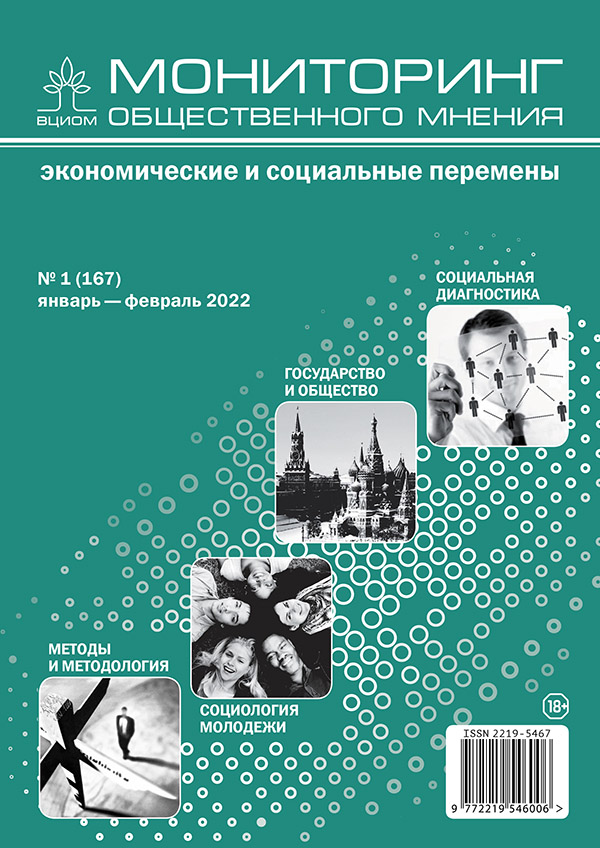Multilingualism and “Third” Languages in the Mass Consciousness of Residents of the Republic of Tatarstan
DOI:
https://doi.org/10.14515/monitoring.2022.1.1729Keywords:
multilingualism, plurilingualism, language policy, Tatarstan, bilingualism, languages of minority nationalitiesAbstract
In the context of the mutual influence of multidirectional vectors of globalization and localization, the growing multilinguality of communities and individuals actualizes the assessment of the state and prospects for the reproduction of cultural and linguistic pluralism in Russian society. The need to accommodate the dilemmas of mono- and multilingualism in society at the beginning of the 21st century draws attention to the multicultural Volga region. Like some other macro-regions of the country, it is characterized by the neighborhood of nationalities who speak Russian and study foreign languages, who are more or less committed to their native language and use neighbors’ language in everyday life. The article focuses on the Republic of Tatarstan, where the value and practices of Russian-Tatar bilingualism as a form of multilingualism are deeply rooted. At the same time, Tatarstan is a bicultural Tatar-Russian and a multicultural territory where the languages of other local peoples are recognized and supported. Based on a representative survey of the inhabitants of the republic with a sample of 2 000 respondents and a series of focus groups to discuss the language situation in the region and the country, the attitudes of the inhabitants (representatives of the two largest ethnic groups — Russians and Tatars, as well as different types of settlements) regarding multilingualism, rights, and obligations to study native languages at school in the context of a new stage of language policy in the country. Controversy and a certain polarization of assessments about multilingualism and “third” local languages are concretized by focus groups’ data among Russians, Tatars, and Udmurts in Kazan and rural areas. The article shows stable repertoires of support and criticism of multilingualism, the substantiation of the neutral and complex positions on the language issue.
Downloads
Published
How to Cite
Issue
Section
License
Copyright (c) 2022 Monitoring of Public Opinion: Economic and Social Changes Journal (Public Opinion Monitoring) ISSN 2219-5467

This work is licensed under a Creative Commons Attribution-NonCommercial-ShareAlike 4.0 International License.






